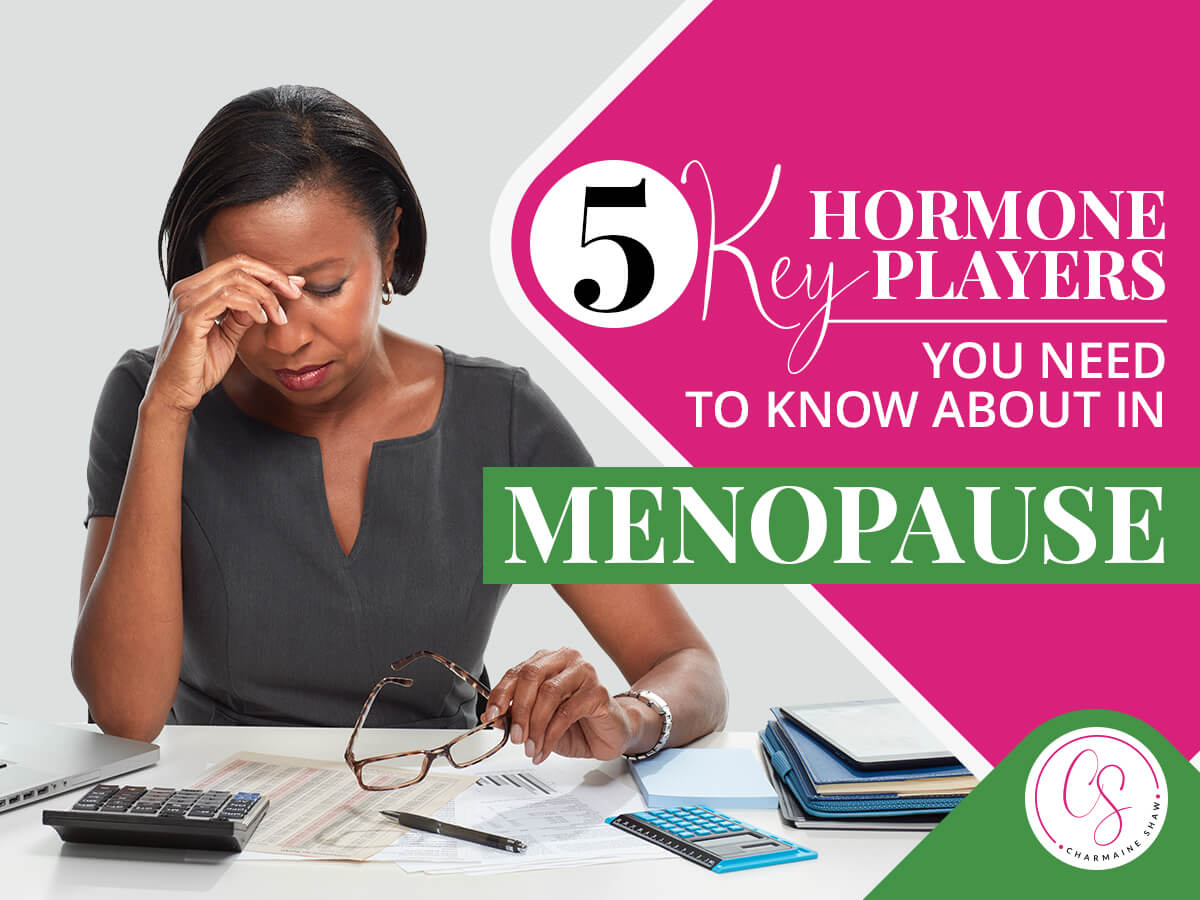You probably know by now, we feel “off” during menopause because of changes in the sex hormones. But they are not the only players that impact how you feel in menopause.
Before we look at all these different systems, let’s get onto the same page —
What are hormones?
Simply put, hormones are the chemical messengers that course through the bloodstream to start, stop, speed up, or slow down various physical and chemical functions and processes.
They control every part of the body, from muscle production and energy level to your moods and desire to help others. They regulate various functions and interact with each other to maintain reduce symptoms in menopause.
These chemical messengers are produced in glands that make up your endocrine system, namely your hypothalamus, pituitary, and pineal glands found in the brain, and the pancreas, ovaries, thyroid, parathyroid, and adrenal glands.
The main female hormones are the sex hormones; estrogen and progesterone that are key in reproduction and menstruation and so many other functions that relies on the balance between the two. But the sex hormones also work with other hormones in the endocrine glands especially the adrenal hormones as well as your thyroid hormones in order to regulate numerous functions and roles so changes in them can then impact the role and function of the sex hormones and therefore impact when and how you experience menopause experience.
Hypothalamus: It signals the production of other hormones and in doing so, helps regulate things like hunger, moods, sleep, body temperature and sex drive.
Pituitary: This is a master endocrine gland that produces hormones that tell other glands and organs to produce more
hormones from the adrenals like cortisol can exert pressure on the pituitary and interfere with other hormones relationships where the pituitary is involved.
Thyroid: Hormones produced by our thyroid are associated with metabolism and heart rate. If you have trouble losing weight – your thyroid may not be functioning optimally.
Adrenals: There are many hormones produced by the adrenal glands but their main function is to help us cope with stress, both physical and mental. Because of this, the adrenals rule the roost in the body. This is because protecting us from danger is considered to be one of the most significant systems in the body and because of that, when we are stressed, the adrenals can cause all kinds of havoc with other systems.
The Ovaries: They produce estrogen, progesterone and small amounts of testosterone before menopause. After menopause, it is the adrenals that produce these hormones to keep women healthy.
The Hormonal Communication Highways
Your brain and endocrine are constantly in communication to facilitate many processes or shifts in the female body by mainly three major highways; HPO axis (hypothalamic-pituitary-ovarian), HPA axis (hypothalamic-pituitary-adrenal) and the HPT axis (hypothalamic-pituitary-thyroid).
The hormonal relationships – it really is complex and often hormone problems are a result of several hormones exerting influence in a way that causes more than one issue.
Balanced hormones are the key to a having a comfortable menopause experience as even small imbalances can make this period more difficult. Food and lifestyle can help immensely to feed the various body parts so they work in a more balanced way.
What you can do?
1. Get things checked out: It’s always important to first get a proper diagnosis to know what your symptoms are indicating and from there actions can be taken to help correct the issues. Start gathering the facts on your hormonal issues to share with your health practitioner – Download this Free Menopause Questionnaire to get started.
2. Make Dietary Changes: Everything you eat and drink helps your hormones to function good or bad. Eating a variety of foods with specific nutrient that can support each hormone is crucial while eliminating the foods that make them a hot mess. Download the free Eat for Hormone Health Guide here for all that and more.
3. Lifestyle Changes: Managing stress, reducing toxic exposure, exercise and sleep are corner stone changes to balance your hormones. Check out the blog or free resources for helpful tools.
4. Get support: Navigating menopause or making changes can be overwhelming. Schedule a Free Consultation to see how my coaching can help or jump over to the online programs here and reclaim your body, health and life.

Please Note: The information presented here is for informational and educational purposes only and is not intended to be used as medical advice. Any statements or claims about the possible health benefits conferred by any products or lifestyle changes have not been evaluated by medical professionals or the Food & Drug Administration and are not intended to diagnose, treat, cure, or prevent any disease. You should consult your health practitioner before changing your diet, taking supplements, or starting any exercise or health program.

